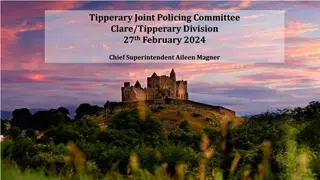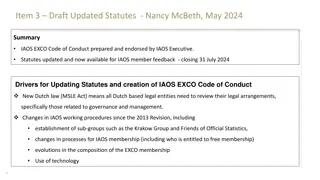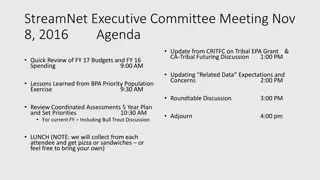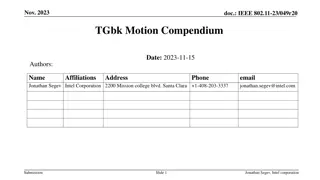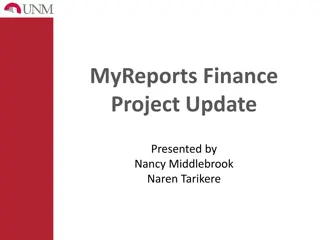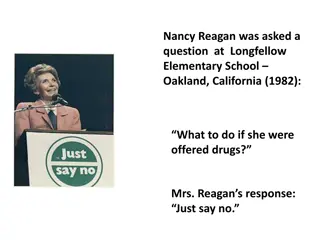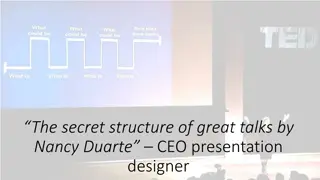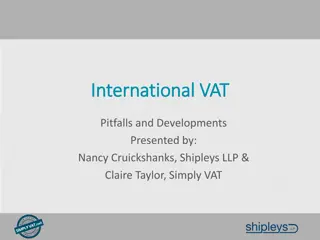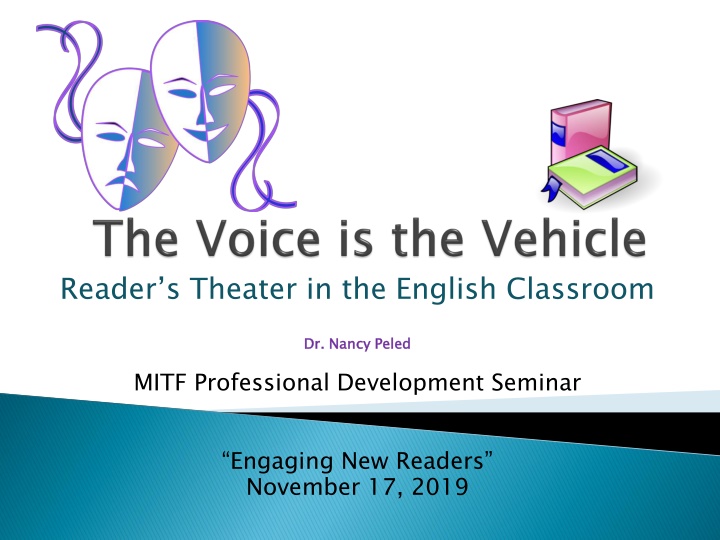
Enhancing Reading Fluency Through Readers Theater and Oral Interpretation
Dive into the world of Readers Theater with Dr. Nancy Peled as she explores the benefits of this interpretive reading activity in improving reading fluency and comprehension skills. Discover how fluency, prosody, and expressive oral reading play key roles in enhancing students' engagement and understanding of texts. Explore the link between fluency difficulties and reading comprehension issues, and learn practical strategies for developing reading fluency through practice and performance.
Download Presentation

Please find below an Image/Link to download the presentation.
The content on the website is provided AS IS for your information and personal use only. It may not be sold, licensed, or shared on other websites without obtaining consent from the author. If you encounter any issues during the download, it is possible that the publisher has removed the file from their server.
You are allowed to download the files provided on this website for personal or commercial use, subject to the condition that they are used lawfully. All files are the property of their respective owners.
The content on the website is provided AS IS for your information and personal use only. It may not be sold, licensed, or shared on other websites without obtaining consent from the author.
E N D
Presentation Transcript
Readers Theater in the English Classroom Dr. Nancy Peled Dr. Nancy Peled MITF Professional Development Seminar Engaging New Readers November 17, 2019
Readers Theater is an interpretive reading activity in which readers use their voices to bring a text to life. Student teachers participating in RT at Oranim Academic College, 2015 Dr. Nancy Dr. Nancy Peled 2019 Peled 2019
Student teachers reading from the play Anastasia, at Oranim Academic College, 2015. Dr. Nancy Dr. Nancy Peled, 2019 Peled, 2019
Readers Theater is an appropriate and effective method for improving reading and oral fluency. Fluency difficulties may be the key concern for upwards of 90% of children with significant problems in reading comprehension. 1997 American National Reading Panel Report Dr. Nancy Dr. Nancy Peled, 2019 Peled, 2019
Fluency (automaticity) is performing any activity (including reading words) with no noticeable cognitive or mental effort. Fluency ~ in any activity~ is achieved through practice. So too, in reading, fluency is achieved through practice. Dr. Nancy Peled, Dr. Nancy Peled, 2019 2019
One teacher observed, I dont know how to define fluency, but I know it when I hear it. Martinez, Roser & Strecker, 2002. Fluency means reading text quickly, accurately, and with proper expression or prosody. This frees the reader s attention to process meaning. The focus of reading instruction is for pupils to get to the meaning. Dr. Nancy Peled, Dr. Nancy Peled, 2019 2019
Reading fluency is a developmental process that refers to efficient, effective decoding skills that permit the reader to comprehend text. ... Fluency is manifested in accurate, rapid, expressive oral reading and is applied during, and makes possible, silent-reading comprehension. Samuels & Farstrup, 2005. Prosody has been described as the music of speech and can be identified in the enthusiasm, phrasing, emphasis, smoothness and pace in oral reading. Groen, Veenendaal & Verhoeven, 2018. Dr. Nancy Peled, Dr. Nancy Peled, 2019 2019
Consider the implication of each statement: Consider the implication of each statement: I I didn't say Nancy stole my blue pen. I didn't I didn't say I didn't say Nancy I didn't say Nancy stole I didn't say Nancy stole my I didn't say Nancy stole my blue I didn't say Nancy stole my blue pen didn't say Nancy stole my blue pen. say Nancy stole my blue pen. Nancy stole my blue pen. stole my blue pen. my blue pen. blue pen. pen. Dr. Nancy Peled, 2019 Dr. Nancy Peled, 2019
Our current thinking on reading fluency is that it is indeed an important factor when considering effective reading programs for students. Moreover, it may be even more of a concern for those students who experience difficulty in learning to read and comprehend what they read. Rasinski, Homan & Biggs, 2008. To gain meaning from text, students must read fluently. Dr. Nancy Peled, Dr. Nancy Peled, 2019 2019
Studies repeatedly demonstrate that Readers Theater is an instructional practice that develops fluency (Garrett & O Connor, 2010; Keehn, et al., 2008; Young & Rasinski, 2009). develops fluency. . Students improve comprehension using close reading techniques characters, themes, and so on, before performing a text. *Students enjoy participating in Reader s Theater!* improve comprehension using close reading techniques to fully understand vocabulary, Dr. Nancy Peled, Dr. Nancy Peled, 2019 2019
A Case Study A Case Study involving fourth graders with comprehension skills but unable to actually read despite mediation. After using Reader s Theater in the classroom: in10 weeks their reading level moved up by year in one year it jumped The teacher called the transformation in their reading fluency "totally remarkable." https://www.scholastic.com/teachers/articles/teaching-content/power-readerx2019s- theater/ reading level moved up by one in one year it jumped three three grade levels grade levels Dr. Nancy Peled, Dr. Nancy Peled, 2019 2019
Research has shown that: in order to learn vocabulary, students need to hear the pronunciation and practice saying the word aloud. (Ellis & Beaton, 1993; Fay and Cutler, 1977.) it is more effective to study words regularly over several short sessions than to study them for one or two longer sessions. (Hunt & Beglar, 1998.) fluency building activities recycle already known words in familiar grammatical and organizational patterns. (Nation,1994.) All of this occurs naturally while preparing Reader s Theater! Dr Dr. Nancy Peled, . Nancy Peled, 2019 2019
Dr. Nancy Peled, Dr. Nancy Peled, 2019 2019
Readers Theatre Play Title: Based on the Book/Story: Setting/Where does the story take place? : Name Traits Cast of Characters Character Traits Name Character Read by Read by Costumes/ Props Costumes/ Props Dr. Nancy Peled, Dr. Nancy Peled, 2018 2018
The night Max wore his wolf suit AND made MISCHIEF of one kind and another. The night Max wore his wolf suit AND made MISCHIEF of one kind and another. Dr. Nancy Peled, Dr. Nancy Peled, 2019 2019
Characters (6): NARRATOR / CHILD 1/ CHILD 2 / CHILD 3 / CHILD 4 MAX NARRATOR: THE NIGHT MAX WORE HIS WOLF SUIT CHILD 1: AND MADE MISCHIEF CHILD 2: OF ONE KIND CHILD 3: AND ANOTHER. NARRATOR: HIS MOTHER CALLED HIM CHILD 4: "WILD THING!" NARRATOR: AND MAX SAID: MAX: "I'LL EAT YOU UP!!" Dr. Nancy Peled, Dr. Nancy Peled, 2019 2019
Possible points for attention: Student read the script with confidence and expression, made appropriate gestures and good eye contact. Student read smoothly and with correct phrasing to reflect the writer s intended meaning. We heard and understood all the words. Dr. Nancy Peled, Dr. Nancy Peled, 2019 2019
Readers Theater promotes fluency because it demands repeated readings reason- the performance. It is an interactive activity with inherent motivation. It increases self confidence It promotes overall reading growth. repeated readings for a real an interactive activity with inherent motivation. increases self confidence in the readers. promotes overall reading growth. Dr. Nancy Peled, Dr. Nancy Peled, 2019 2019
Reader's Theater meets the of many types of students: struggling readers. students acquiring English. accelerated learners. It promotes It enhances vocabulary meets the individual needs individual needs promotes oral fluency enhances vocabulary acquisition. oral fluency. acquisition. Dr. Nancy Peled, Dr. Nancy Peled, 2019 2019
Readers theater is an activity that is suitable for any age reading ability, from very young children to adults. Practicing repeated reading- improves the ability to read effortlessly, and suitable for any age group, group, even those with minimal Practicing for the performance that is, improves the ability to read connected text rapidly, smoothly, effortlessly, and automatically. rapidly, smoothly, automatically. Dr. Nancy Peled, Dr. Nancy Peled, 2019 2019
Provides a context for writing. Expands vocabulary. Promotes collaboration and attentive listening. Offers a supportive context for peer assessment. Can be integrated into other subjects. Dr. Nancy Peled, Dr. Nancy Peled, 2019 2019
Readers Theater in the classroom integrates reading, writing, speaking and listening in an authentic context. It makes reading come alive! Dr. Nancy Peled, Dr. Nancy Peled, 2019 2019
Channell, J. (1988). Psycholinguistic considerations in the study of L2 vocabulary acquisition. In R. Carter & M. McCarthy (Eds.), Vocabulary and Language Teaching. London: Longman. Clementi, L B. (2010). Readers theater: a motivating method to improve reading fluency. Phi Delta Kappan, 91 (5), 85-88. Doherty J., Coggeshall K. (2005). Reader's theater and storyboarding: Strategies that include and improve. Voices from the Middle, 12 (4) 37-43. Groen, M. Veenendaal, N & Verhoeven, L. (2018). The role of prosody in reading comprehension: Evidence from poor comprehenders: Prosody and Reading Comprehension. Journal of Research in Reading, 42 (3), 1-21. Hunt, A. & Beglar, D. (1998). Current research and practice in teaching vocabulary The Language Teacher, http://jalt-publications.org/tlt/articles/1914-current-research-and-practice-teaching-vocabulary Keehn,S. (2003. The effect of instruction and practice through readers theatre on young readers' oral reading fluency. Reading Research and Instruction, 42 (4), 40-61. Loertscher D. V. ( 2009). More readers theater for middle school boys: adventures with mythical creatures. Teacher Librarian, 37 (10) 61; 84. Martinez, M., Roser N. L., & Strecker S. (1998-1999). "I never thought I could be a star": a reader s theatre ticket to fluency. The Reading Teacher, 52 (4), 326-334. McKay, M. E. (2008). Readers Theatre Take Another Look It s More Than Fluency Instruction LEARNing Landscape, 2 (1) 131-144. Nation, I. S. P. (Ed.). (1994). New Ways in Teaching Vocabulary. Alexandria, Virginia: TESOL, Inc. Ruggieri C. A. (2008). A chorus of thought: readers theater in the high school English class. English Journal; High School Edition, 97 (6), 118-119. Young, C & Rasinski, T. (2009). Implementing readers theatre as an approach to classroom fluency instruction. The Reading Teacher, 63(1), 4 13. Worthy, J & Prater, K. (2002). I thought about it all night: Readers theatre for reading fluency and motivation. The Reading Teacher, 56 (3), 294-297. Dr Dr. Nancy Peled, . Nancy Peled, 2019 2019
Aaron Shepherd has great resources: http://www.aaronshep.com/rt/RTE.html Brian Smith shares ideas and scripts: https://www.scholastic.com/teachers/blog-posts/brian- smith/increasing-reading-fluency-readers-theater/ From Dr. Chase Young: http://www.thebestclass.org/rtscripts.html A teacher resource site: http://www.teachingheart.net/readerstheater.htm Promoting Spoken English in the 7th Grade (MOE site) https://sites.google.com/view/letstalk7/home Dr Dr. Nancy Peled, . Nancy Peled, 2019 2019

